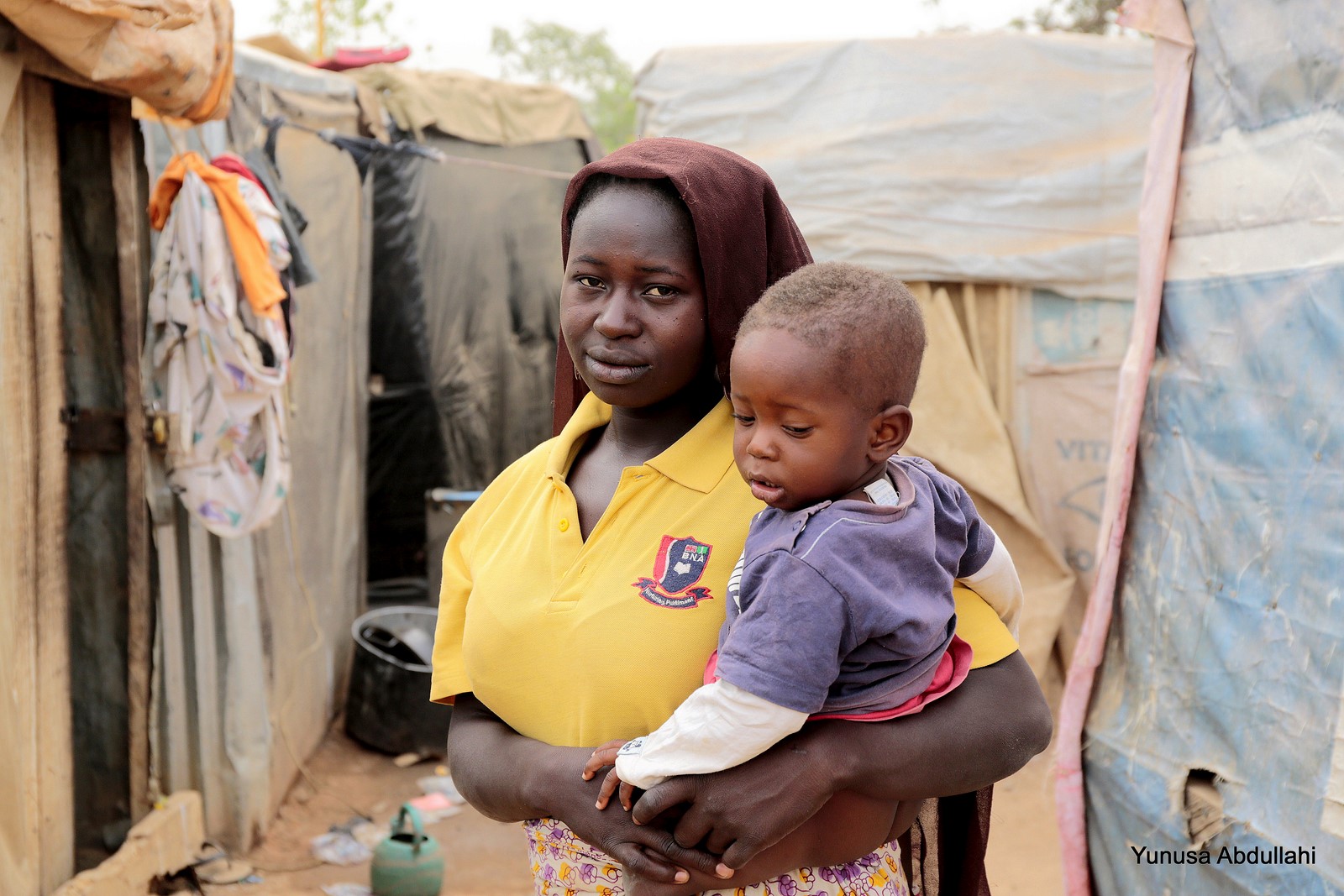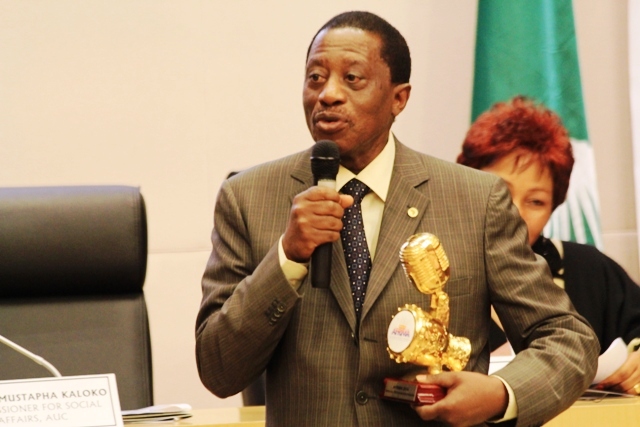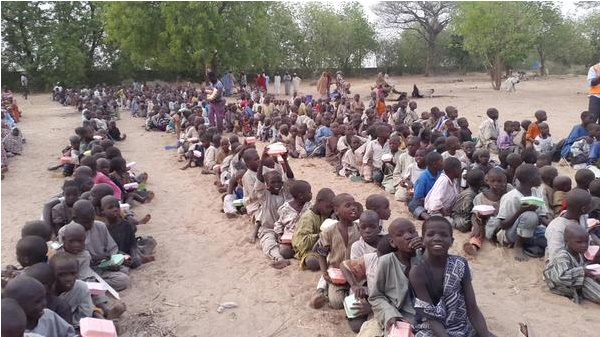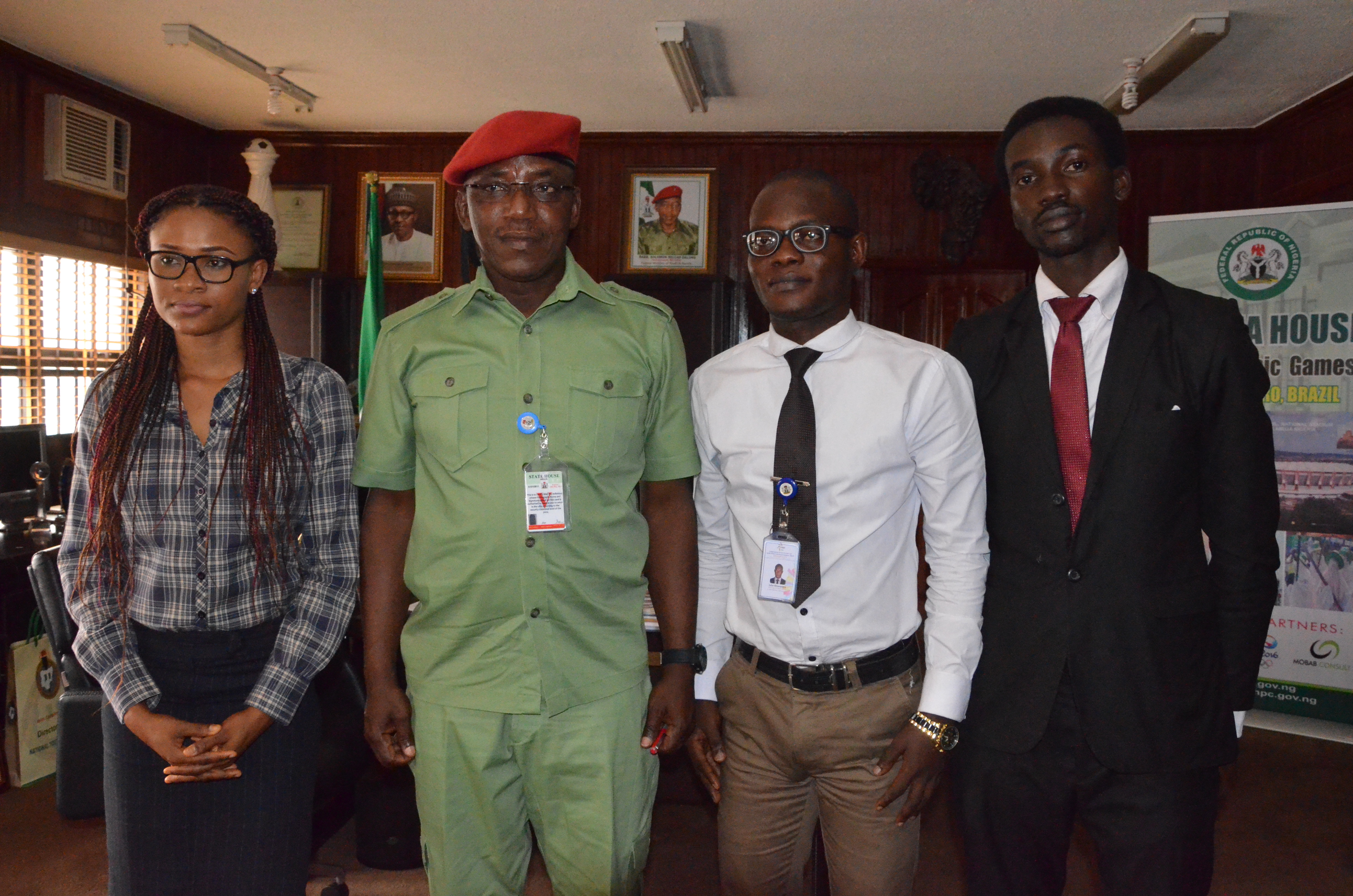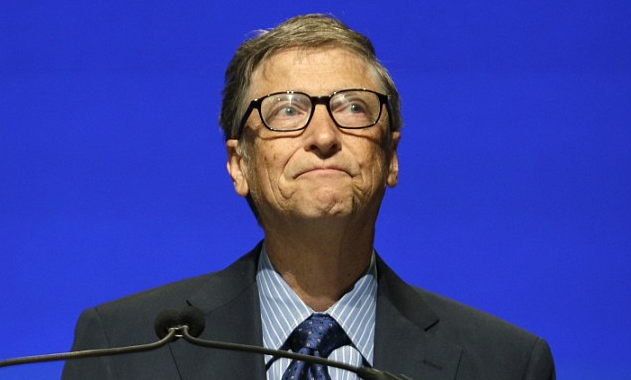A young mother with her baby looks into the future with hope
“I have two children, but one is dead. A month after I gave birth to him, he started having diarrhea, and then he had a fever. I took him to Gwagwa and he died there. He was sick for one month,” Habibatu Abubakar says.
Habibatu lives in Bassan Jiwa community in Abuja. And in that community, there is hardly water to drink. Women in the community are responsible for this chore, they and the children bear the brunt of a lack of access to water. Stories like this abound, MIND, an NGO that focuses on urban poor women, says.
“When I don’t have water stored, I go to fetch water five times a day. And when I have water stored, I go four times a day. At the borehole, I pay five naira for each bucket of water. Every day, I spend thirty naira and sometimes fifty naira. It is crowded. If I go there and there are lots of people,” Habibatu tells the organization.
The statistics are gruelling, and Nigeria is at the receiving end of all of this. For instance, in 2015, 80 per cent of all child death occurred in South Asia and sub-Saharan Africa, and nearly half occurred in just five countries, including Nigeria.
Advertisement
The reasons are basic, inadequate access to drinking water, poor hygiene and sanitation amongst others.
“Sometimes, I would climb a motorbike and head to Basa to buy and carry back water. I would use it to bath the kids before heading to school. The stream, that stream, is very dangerous water. Sometimes if you use it for bathing, you will start peeing blood after some months. And if you bath there, you will develop a skin rash and be scratching yourself.
“That’s why I don’t allow my children to go there to fetch water, because that water is bad water, diseased water. My oldest child went there to wash clothes, and afterwards, when he had to urinate at night he would urinate blood. We took him to hospital for tests. They told us it was the water where he had washed clothes. They gave him medicine and it stopped, but then it came back,” Justina Okafor said in an interview the organization, MIND, conducted.
Advertisement
According to a research by the UNICEF, in low- and middle-income countries like Nigeria, inadequate drinking water, sanitation and hygiene accounted for around 1,000 under-five deaths per day.
In Nigeria, lack of access to improved water and sanitation facilities may elevate the risk of mortality among children aged 1 to 11 months.
But it is not just access to water that puts Nigeria as a disadvantaged position of high statistics in child mortality and the quality of life led by children. The staggering uneven distribution of wealth, for instance, is a factor.
And regions in the country affected by insurgency have double the size of under-five mortality rate.
Advertisement
The “under-five mortality rate (U5MR) in the wealthiest and the poorest households is above the SDG target, and marked disparities persist between regions (in Nigeria).
“In the North-West region of Nigeria, for example, U5MR was double that of the South-West. And while the richest 20 per cent will have to cut mortality by more than half to achieve the target by 2030, the poorest 20 per cent must achieve a reduction of three quarters.”
Malnutrition
Nigeria is the country with the second worst malnutrition statistics. The federal ministry of health warned that malnutrition in children contributes to the high children mortality in Nigeria. According to the federal ministry of health, 1 in every 2 child deaths is from malnutrition and 37 per cent of children are stunted. This paints a stark picture for Nigeria – stunted growth means poor brain development and inability to reach full potential and in turn, the society’s full potential.
“Denying hundreds of millions of children a fair chance in life does more than threaten their futures – by fueling intergenerational cycles of disadvantage, it imperils the future of their societies,” said UNICEF Executive Director Anthony Lake.
Advertisement
“We have a choice: Invest in these children now or allow our world to become still more unequal and divided,” UNICEF says.
But if the statistics look bleak for Nigeria, it is worse in sub-Saharan Africa region with over 247 million children “or 2 in 3 – live in multidimensional poverty, deprived of what they need to survive and develop, and where nearly 60 per cent of 20- to 24-year-olds from the poorest fifth of the population have had less than four years of schooling,” UNICEF says.
Advertisement
It added that if allowed to go on, nearly half of the 69 million children who will die before their fifth birthday from mostly preventable causes will come from sub-Saharan Africa.
The region will also account for more than half of the 60 million children of primary school age who will still be out of school; and nine out of 10 children living in extreme poverty.
Advertisement
Add a comment
